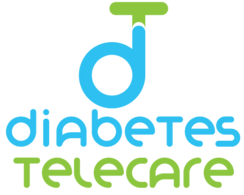Continuous Medical Education for Healthcare Professionals in Diabetes Management
The Evolving Landscape of Diabetes Care
Diabetes is a global health challenge, affecting millions of people and placing a significant burden on healthcare systems. As medical research advances, new treatments, technologies, and best practices emerge, requiring healthcare providers to stay informed and continuously update their knowledge.
This is where continuous medical education (CME) plays a crucial role in ensuring that doctors and healthcare professionals can provide the highest standard of diabetes care.
The Necessity of Lifelong Learning in Healthcare
Healthcare is dynamic, with new guidelines, drug therapies, and management protocols being introduced regularly. In diabetes care, evidence-based treatment strategies evolve to accommodate new findings in lifestyle interventions, pharmacological advancements, and digital health innovations. Healthcare providers who engage in CME are better equipped to:
- Offer personalized and effective treatment plans
- Reduce diabetes-related complications
- Improve patient outcomes through evidence-based interventions
- Adapt to new medical technologies and treatment approaches
Advancements in Diabetes Care and the Role of Updated Training
With the rise of new diabetes medications, continuous glucose monitoring (CGM) systems, and digital health tools, healthcare providers must be well-versed in these advancements. CME ensures that doctors and allied healthcare professionals understand:
- The latest pharmacological treatments such as GLP-1 receptor agonists and SGLT-2 inhibitors
- The role of lifestyle interventions, including diet, exercise, and stress management
- How to interpret CGM and insulin pump data for better patient management
- The integration of artificial intelligence (AI) in diabetes prediction and remote monitoring
Challenges Faced by Healthcare Providers Without Updated Knowledge
Lack of continuous education can lead to outdated practices, ineffective treatment plans, and poor patient outcomes. Some of the challenges include:
- Difficulty in adopting newer treatment protocols
- Mismanagement of diabetes complications due to outdated knowledge
- Inability to guide patients effectively on emerging technologies
- Reduced professional credibility and patient trust
The Role of Digital Learning and LMS in Medical Education
Traditional learning methods such as conferences and in-person workshops can be costly and time-consuming. Digital learning platforms, such as Learning Management Systems (LMS), offer a flexible, accessible, and efficient solution for healthcare professionals. The advantages of LMS-based CME include:
- 24/7 access to updated courses and training materials
- Interactive case studies and real-world patient management simulations
- Certification programs that enhance professional credentials
- Easy tracking of progress and continuous assessment opportunities
Case Studies: Success Stories of Trained Professionals Improving Diabetes Care
Several healthcare providers have witnessed significant improvements in patient outcomes after engaging in CME programs. Examples include:
- A primary care physician who reduced diabetes-related amputations by integrating new wound care guidelines
- An endocrinologist who improved glycemic control in patients by utilizing the latest CGM data interpretation techniques
- A diabetes educator who empowered patients through digital health apps and remote monitoring
Stay Ahead in Diabetes Care—Commit to Continuous Medical Education Today
Continuous medical education is no longer optional—it is essential for providing quality diabetes care. As the landscape of diabetes management evolves, healthcare professionals must invest in their education to stay ahead.
Digital learning platforms, such as LMS-based training, offer an effective and flexible approach to acquiring updated knowledge. By embracing lifelong learning, healthcare providers can enhance their clinical skills, improve patient outcomes, and contribute to the global fight against diabetes.

